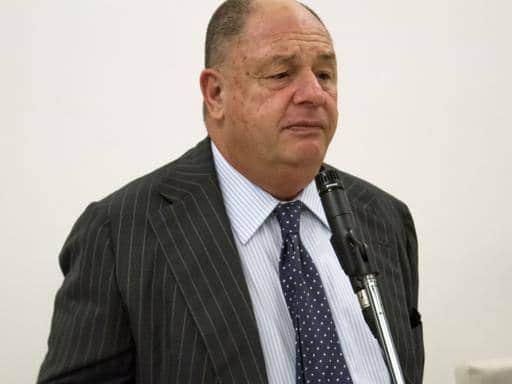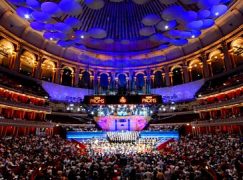The critic who got banned from La Scala
mainThe Corriere della Sera critic Paolo Isotta has died in Naples, aged 70.
Paolo seldom had a good word to say for Abbado and never a bad one for Muti. In 2013 he was banned from La Scala after a hostile review of Daniel Harding, Abbado’s protégé.
He was the dominant music critic of his day.






De mortuis, nil nisi bene.
Nil nisi *bonum* is another matter altogether.
If *bonum* were required, no obituaries could ever be written, only eulogies.
Having been privileged to know and follow Massimo Mila, Roman Vlad, and Leonardo Pinzauti, to name but three, I would rather be sentenced to a whole lockdown diet of Lang Lang and Andrea Bocelli (the musical equivalent of gnawing my legs off) rather than acquiesce to classifying Paolo Isotta as a musical *critic* proprio iure.
A forceful musical polemicist, if you wish: yes, by all means; and occasionally a mighty destructive one at that.
But the mandatory requirement of a critic is discernment, as indeed the very etymology of *krinein* implies. That criterion would knock Isotta out of the ballpark.
If I’d had to name, off-hand, Stéphane Lissner’s outstanding quality, I would have said: guts. Courage. His kicking out Paolo Isotta was an unceremonious but fine display of Lissnerian gutsiness.
Norman really needs to set up a separate Obits page on SD. They’re a separate category on their own.
“He was the dominant music critic of his day.”
I must have missed this…
In his late years, Mr. Isotta came to his senses and started to write the truth about Muti as a human being. Just Google “Isotta Che Botta Riccardo Muti” and use a translate app.
He wrote that Muti’s “… conception of friendship is summarized in a sentence of Spinoza (Ethics Pars V): Qui Deum amat, conari non potest, ut Deum ipsum contra amet. (He who loves God cannot attempt to have God correspond)”. Muti is God in this metaphor, and in real life, in case you did not know.
He wrote extensively about Muti being an accomplice of the utter destruction of the glorious San Carlo acoustics (during the theater “restoration”)- Maestro’s attempt to ingratiate himself to the administration and gain a foothold there as the last place where he could conduct opera in Europe, which he craves more than anything else.
In Naples, thankfully, Mr. Lissner is not having any of Muti’s crap (God bless the French) and is teaching Muti who is boss. Lissner unceremoniously putting Muti back in his place, in Milan first, and now in Naples is nothing short of divine justice.
Isotta also pointed out that Muti’s “sons manage his activities and his image in such a way as to trigger everyone’s hilarity”
Because of his late conversion and criticism of Muti, Mr. Isotta was banned from the Corriere della Sera, the main Italian newspaper, where either you are part of the Muti “mafia”, or you are out. (Right, Mr. Cappelli?)
I always thought that Isotta was an extremist and his 20-year of Muti’s adoration and anti-Abbado animus were insufferable, dishonest and a great disservice to readers.
May he rest in peace.
If you believe a critic when he praises you, you must also believe him when he disparages you.
I wonder what the hostility to Abbado was about? Anybody have a view.
It is quite simple. If one loves the mud, she cannot take any delight in the the spirit. And if one if fond of the spirit, she will not derive great pleasure dwelling in the mud. I will let you decide which is which in this context.
I guess that politics may play a role here. Abbado was openly a sympathizer of the (Italian) Communist party. Isotta has never hidden his right-wing sympathy.
Isotta was a very cultured man but also very dogmatic in his liking and dislikingso it may be that politics has biased is judgement when coming to Abbado…Moreover he was “against” and anti-conformist by principle: while all critics would say that Abbado was the best conductor in the world he could well say that Nello Santi was superior…Most of time he did so, I think, for the pleasure of shocking the readers
What is sure is that he was really fun to read, either you agree or not on what he was saying. But others were the prime critics in Italy…
Before y’all get smart he was a
C R I T I C.
They give their own opinions whether you agree or not and if an artist can’t take an ounce of hate or criticism they are in the wrong business.
Especially at La Scala
“Pay no attention to what the critics say. A statue has never been erected in honor of a critic.”― Jean Sibelius
Well, in Vienna there is one for Hanslick. https://www.geschichtewiki.wien.gv.at/Datei:Eduardhanslick-denkmal.jpg. 😉
Funny, I know Abbado’s name, but not Isotta (other than with Tristano).
Maybe critics don’t really matter in the long run.
Wow, I didn’t know Isotta was an Italian surname. Or was it assumed? It seems too much like fiction to be true. Anyway, I now know what I want to be named in my dreamed-of future Italian incarnation (with Tristano as my first name, obviously).